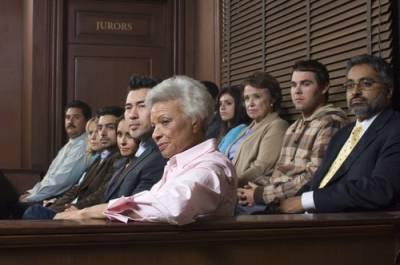 In the American criminal justice system, juries play a vital role. They are responsible for determining a defendant's guilt or innocence, and their verdicts can have far-reaching consequences. However, there may be some cases where jurors may believe that defendants have been treated unfairly, or they may seek to correct injustices and biases in the system. In the United States, juries have the power to find defendants "not guilty" even if they believe that the defendant may technically be guilty of the crime. This is called jury nullification.
In the American criminal justice system, juries play a vital role. They are responsible for determining a defendant's guilt or innocence, and their verdicts can have far-reaching consequences. However, there may be some cases where jurors may believe that defendants have been treated unfairly, or they may seek to correct injustices and biases in the system. In the United States, juries have the power to find defendants "not guilty" even if they believe that the defendant may technically be guilty of the crime. This is called jury nullification.
Jury nullification is also known as "conscientious acquittal" or "juror veto," and it can happen for a variety of reasons. In some cases, jurors may not agree with the law that the defendant is accused of breaking. For example, some juries have used nullification to acquit defendants accused of possessing small amounts of marijuana, even though marijuana possession is still technically illegal in many states. In other cases, jurors may believe that the defendant's actions, while technically criminal, did not deserve to be punished. For example, a jury may choose to nullify a criminal charge against a homeless person who stole food because they believe that the defendant was driven by necessity.
In most cases, juries are instructed by the judge to base their decision solely on the evidence presented during the trial. However, to find a defendant guilty, the prosecution must prove beyond all reasonable doubt that the person committed the offense in question. This is a very high standard, and jurors may base a "not guilty" verdict on multiple forms of doubt. They may call the reliability of eyewitnesses' memories into question, or they may believe that the prosecution has not offered a plausible explanation for the timeline of events surrounding an alleged offense.
Juries are required to reach a unanimous verdict. In some cases involving jury nullification, one or more jurors may vote to acquit a defendant, refusing to allow for a unanimous "guilty" verdict. Judges will usually encourage a jury to deliberate further and attempt to reach a unanimous verdict. However, if a consensus cannot be reached, and the jury cannot agree on a verdict, the judge may declare a mistrial.
A jury has the right to find a defendant "not guilty" for any reason, and they are not required to provide explanations to a judge for their decisions. However, many jurors are unaware of the possibility of jury nullification. Defense lawyers are not allowed to mention jury nullification during a trial, and anyone who discusses jury nullification with a person who has been selected as a juror may be charged with jury tampering. In some cases, judges may incorrectly inform jurors that they are required to base their verdict on the evidence presented during a trial and that a verdict that is contrary to the evidence would violate the law. However, this is not true, and jurors may choose to acquit a defendant even if they believe that the person committed the offense in question.
Jury nullification is an important concept in American criminal justice because it provides juries with a way to exercise their own judgment and stand up against unjust laws. While many people may not realize the rights they have when serving on a jury, those who are informed of the option for jury nullification may be able to stand up against bias and prejudice in the justice system and protect the rights of defendants. If you have questions about this issue, or if you want to know more about how our Connecticut criminal defense attorney can help protect your rights, contact Woolf & Ross Law Firm, LLC today at 860-290-8690 and set up a free consultation.
Sources:
https://beyondcourts.org/en/act/voting-not-guilty-toolkit-jury-nullification
https://fija.org/library-and-resources/library/jury-nullification-faq/what-is-jury-nullification.html
 50 Founders Plaza
50 Founders Plaza

